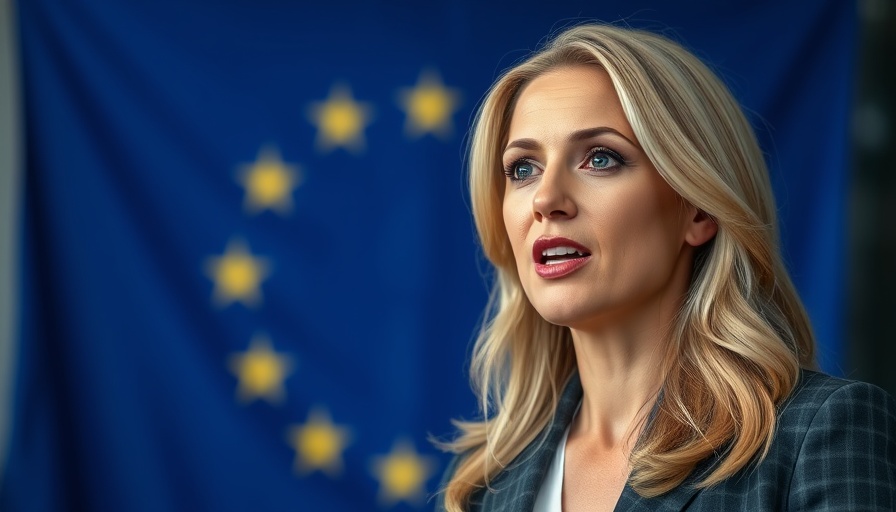
How Trump's Policies Are Shaping EU's Economic Landscape
As President Trump's second term hits its one hundred-day mark, European leaders find themselves grappling with unprecedented challenges. Kaja Kallas, the EU's foreign policy chief, described the situation succinctly: "It's unlike anything else we've seen before from the U.S. administration." This unique level of unpredictability significantly impacts not only political relationships but also the economic dynamics between the U.S. and Europe.
The Trade Uncertainty
One of the major sources of anxiety for Europe is the trade policies enacted by the Trump administration. The imposition of a 20% blanket tariff on U.S. exports to the EU has caused complex negotiations to stall. While the tariffs were temporarily reduced, uncertainty looms over the Europe-American trade relationship with the possibility of U.S. tariffs on aluminum, steel, and autos becoming permanent. As businesses on both sides of the Atlantic await clarity, planning for fiscal responsibilities remains uncertain, especially concerning tax deductions and financial strategies.
Geopolitical Implications of Trump's Decisions
European leaders are not only concerned about trade; Trump's recent strategies towards Russia's war on Ukraine add another layer of complexity. The expectation of enduring ramifications from strained U.S. relations with Russia resonates distressingly across European nations. The EU must remain agile in its fiscal strategies, particularly for taxpayers, to navigate the ongoing crisis successfully. Senior EU officials emphasize the importance of adapting financial policies and tax strategies to mitigate potential economic fallout.
What This Means For Taxpayers
While the geopolitical landscape is shifting, taxpayers also face uncertainties regarding deductions and tax planning strategies. As businesses prepare for possible changes, it's critical that individuals and small business owners understand the deductions available to them. Savvy planning can alleviate financial stress during these tumultuous times, highlighting the importance of consultation with financial advisors to utilize small business tax deductions effectively.
In conclusion, as Europe navigates the upheaval caused by Trump's unconventional governance, it’s essential for both individuals and businesses to stay informed and strategically plan for their financial futures. Exploring ways to lower taxes and maximizing available deductions can offer a buffer during this unpredictable period. Staying proactive is key for thriving amidst the uncertainty.
 Add Row
Add Row  Add
Add 




 Add Row
Add Row  Add
Add 

Write A Comment